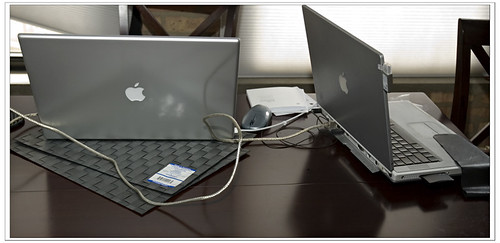
This exact thing happened to me when I attempted to install Leopard on my MacBook Pro.
If you have, in the past, swapped your system hard drive on your Intel Mac, you might want to check its partition scheme before upgrading to Leopard.
[snip]
Apparently, I had used the Apple Partition Map when I formatted the drive, which is supposedly only good for using as a bootable system drive for PowerPC Macs. Leopard, however, will only install (on an Intel Mac) on a drive formatted using the GUID Partition setting, which is designed to be used for boot discs for Intel based Macs. I don't know why my MacBook was working fine till now, but that's how it was.
[From macosxhints.com - 10.5: Verify partition map prior to upgrading ]
When I first purchased the machine, I copied the data from a 400 Mghz TiBook which had two partitions. I decided I didn't really need two partitions, so reformatted. I wasn't even aware there was an option to choose from, thus the disk got formatted using the so-called Apple Partition Map instead of GUID Partition. Hadn't noticed a thing wrong in all the months I'd used the machine before installing Leopard, but apparently a Leopard is a finicky beast, and wouldn't let me proceed. Strangely enough, after I went to the trouble of using SuperDuper! and cloning the laptop disk (via Firewire target mode to a desktop with enough free space), I somehow managed to change the partition mapping without reformatting. Don't ask me exactly how, but I did, using the Leopard install DVD's copy of Disk Utility.
Working fine now, installed without major incident on 4 other machines. I may or may not get around to blogging about my first impressions of Leopard, but am liking it so far. Go ahead and get yourself a copy if you haven't already.
